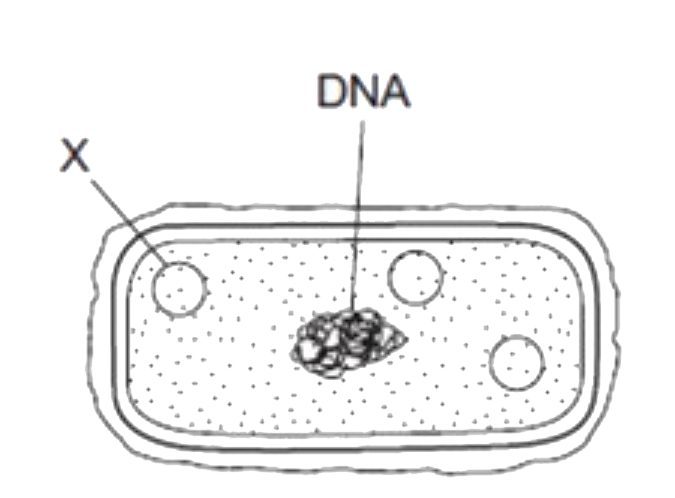Give reasons why :
(a) DNA cannot pass into a host cell through the cell membrane.
(b) Proteases are added during isolation of DNA for genetic engineering.
(c ) Single cloning site is preferred in a vector.
(a) DNA cannot pass into a host cell through the cell membrane as the DNA molecule is polar (negatively charged) and plasma membrane is non-polar (hydrophobic) in nature.
(b) Proteases are added druing isolation of DNA for genetic engineering to hydrolyse the proteins present in cell.
(c ) Cloning site : To link the foreign DNA, the vector needs to have every few, preferably single recognition sites for hte commonly used restriction enzymes. Presence of more than one recognition sites within the vector will generate several fragments, which will complicate gene cloning.
Topper's Solved these Questions
- XII BOARDSBOOK - XII BOARDS PREVIOUS YEARCHAPTER - XII BOARDSEXERCISE - Section D
18 Videos
- XII BOARDSBOOK - XII BOARDS PREVIOUS YEARCHAPTER - XII BOARDSEXERCISE - SET -I Section -A
8 Videos
- XII BOARDSBOOK - XII BOARDS PREVIOUS YEARCHAPTER - XII BOARDSEXERCISE - Section B
50 Videos
- SAMPLE PAPER 2019BOOK - XII BOARDS PREVIOUS YEARCHAPTER - SAMPLE PAPER 2019EXERCISE - Section E Part B
3 Videos
Similar Questions
Knowledge Check
DNA cannot pass through a cell membrane as
Ait is too big to cross the memebraneBit is a hydrophilic moleculeCmembrane does not have specific proteins to facilitate the transportDnone of theseAssertion: DNA cannot pass through cell membranes
Reason :DNA is a hydrophobic moleculeAIf both Assertion & Reason are True & the Reason is a correct explanation of the AssertionBIt both Assertion & Reason are True but Reason is not a correct explanation of the AssetionCIf Assertion is True but the Reason is FalseDIf both Assertion & Reason are false(A) : DNA is a hydrophobic molecule.
(R) : It can pass through cell membrane very easily.AIf both (A) and (R) are true and (R) is the correct explanation of (A).BIf both (A) and (R) are true but (R) is not the correct explanation of (A).CIf (A) is true but (R) is false.DIf both (A) and (R) are false.
Since DNA is a hydrophilic molecules, it cannot pass through cell membranes. Why ?
View SolutionDNA being hydrophilic cannot pass through the cell membranes of a hot cell. Explain how does recombinant DNA get introduced into the host cell to transfrom the latter.
View SolutionWhy is it difficult for DNA to pass through cell membrane? How is a bacterial cell made competent to take up DNA (plasmid)?
View SolutionThe diagram shows the structure of a bacterial cell.

The presence of structure C in the bacterial cell is one reason why bacteria are used in genetic engineering . In the cloning vector pBR322, which gene is responsible for the replication of structure X ?
View SolutionAssertion (A): Phagocytosis is the intake of solid material by the cell through cell membrane.
Reason (R): Phagocytosis leads to the formation of food vacuole.
a) Both Assertion and Reason are true and Reason is the correct explanation for Assertion.
b) Both Assertion and Reason are true but Reason is not the correct explanation for Assertion.
c) Assertion is true and Reason is false.
d) Assertion is false and Reason is true.
View Solution
